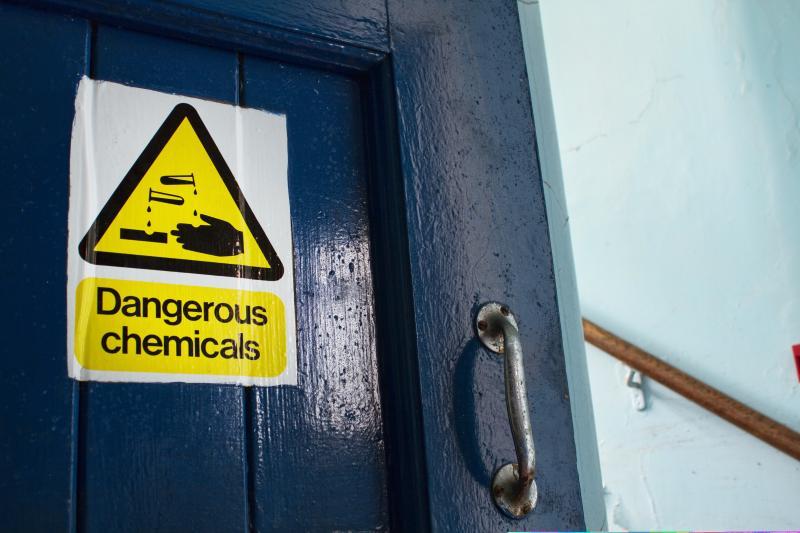
Tom Blackwell: https://www.flickr.com/photos/tjblackwell/6757563539
European Commission backtracks on promise to stop massive export of banned pesticides
Out of the publication yesterday afternoon of its ‘Work Programme 2023’ it became clear that the European Commission is breaking a political promise made two years ago to address the export of pesticides that are deemed too dangerous for human health in the EU and are therefore banned, but nevertheless exported on a massive scale to third countries like Brazil.
In November 2020 a large group of MEPs called on the European Commission to prohibit the export of pesticides that have been banned in the EU due to their adverse health and environmental effects, and to stop importing foodstuffs produced outside the EU using these dangerous chemicals. In the same month over 70 NGOs called for similar actions. Both France and Germany have already proposed or adopted national laws to ban such exports, and Belgium is in the process of doing so as well.
In October 2020, the European Commission committed to “lead by example, and, in line with international commitments, ensure that hazardous chemicals banned in the European Union are not produced for export.” Now it seems the planned and promised ban on the export of chemicals and pesticides that are forbidden in the EU because they are harmful for human health and the environment, is no longer on the table for this Commission.
Syngenta
One such example is the massive European export of pesticides from the neonicotinoid family, which are highly toxic to insects in general, and pollinators in particular, and which have been banned from outdoor use throughout the EU since 30 April 2019. Belgium is a key player concerning these toxic exports. According to a report by the NGO Public Eye, Belgium exports no less than 44.2 per cent of all neonicotinoids that leave the EU for countries where environmental and worker protection rules are sometimes weak or even non-existent.
The agrochemical giant Syngenta is one of the key players and its flagship thiamethoxam product ‘Engeo Pleno S’ is exported mainly to Brazil from its Seneffe plant in the south of Belgium which has Syngenta’s biggest EU production hub. Information requested from the Belgian federal authorities, showed that 153 tonnes of thiamethoxam were exported from Belgium in 2020 alone.
The European Commission claims that it lacks capacity to fulfill its promise, even though ending this double standard is a key element of the flagship European Green Deal. It is a low-hanging fruit as there is wide support for such a ban. The Commission’s policy shift is highly disappointing and reflects the extent to which the Commission is under pressure from agrochemical industry groups, commented lobby watchdog Corporate Europe Observatory.
In 2018 alone, more than 81,000 tonnes of pesticides (1) containing 41 different hazardous chemicals banned for agricultural use in the EU, including several neonicotinoids, were exported from Europe. According to ECHA's latest biennial report under the so called ‘Prior Informed Consent (PIC) Regulation’ (2), the EU sent almost 20,000 notifications for the export of hazardous chemicals from 1 January 2020 to 31 December
2021. This was 23 per cent more than in the previous two years and these chemicals went to 156 non-EU importing countries.
Nina Holland researcher at Corporate Europe Observatory said: “Not delivering on this promise is no less than a moral defeat for the European Commission in particular and the EU as a whole. The Commission had promised to address this extreme case of double standards whereby the EU is contributing to massive human rights violations in for example Brazil, the biggest importer of toxic pesticides that are banned in the EU. It is incomprehensible how the Von der Leyen Commission let its priorities for the last year of its term be influenced so deeply by corporate lobbies, to the detriment of the promises of the European Green Deal.”
ENDS
Notes:
- (1) Banned in Europe: How the EU exports pesticides too dangerous for use in Europe (publiceye.ch)
- (2) From Echa’s 4th report: The PIC Regulation governs the export and import of certain hazardous chemicals between EU and non-EU countries, placing obligations mainly on companies that want to export these chemicals to non-EU countries. Its objectives are to:
• implement the “Rotterdam Convention on the prior informed procedure for certain hazardous chemicals and pesticides in international trade” within the EU;
• promote shared responsibility and cooperation in the international trade of hazardous chemicals; and contribute to the environmentally sound use of hazardous chemicals.
• According to our request for information, Belgium is also the champion in the export of other dangerous and banned products. 2,282,076 kilos of acetochlor to Ukraine, 545,000 kilos of 1,3-dichloropropene to Honduras, Carbendazim to Bangladesh and Iprodione to Ecuador. All these products are banned in the EU because they present an unacceptable risk to health, biodiversity or aquatic life. Europe must legislate and ban these exports. Otherwise, its rhetoric on the protection of the environment and health seems completely incoherent. Belgium should also accept its responsibilities nationally, as France has done, and stop allowing these toxic exports.
